For today’s small business owner, the digital world often feels like a sprawling, chaotic marketplace. You know you should be on social media—that’s where your customers are. However, managing channels, creating engaging content, running profitable ads, and keeping up with ever-changing algorithms is a full-time job. You are juggling operations, customer service, and product development. When does the marketing actually happen? The result is often fragmented, inconsistent efforts that yield minimal results, leaving you feeling frustrated and overwhelmed.
This is the exact moment when partnering with a specialist makes sense. Hiring a small business social media agency is not a sign of weakness; it’s a strategic decision that signals an understanding of efficiency and scale. You gain access to expertise, proven processes, and advanced tools that are simply unavailable to a single in-house employee or an overworked founder. The right agency transforms social media from a time-sink into a powerful, predictable engine for growth. This authoritative yet approachable guide will walk you through the entire journey, from determining your needs to vetting the perfect partner. We will show you how a dedicated agency can translate likes into leads, ensuring your investment delivers a robust return and solidifying your brand’s relevance in a crowded digital space.
Phase 1: Diagnosing Your Social Media Problem
Before you hire any small business social media agency, you must identify precisely what your current struggle is. A clear diagnosis leads to the correct prescription and ensures you hire an agency that specialises in solving your specific challenge.
The Three Common Social Media Bottlenecks
Most small businesses fall into one of three critical pain points when attempting to manage social media internally.
The Content Creation Crisis (The Time Problem)
- The Symptom: You know what you want to say, but you lack the time, skills, or tools to produce high-quality, on-brand content (graphics, videos, polished copy) consistently. Your feed is often silent, or the quality is highly variable.
- The Agency Solution: You need an agency strong in creative production and content calendar management. They should provide dedicated designers, copywriters, and video editors to maintain a professional, consistent presence.
The Strategy and Targeting Void (The Direction Problem)
- The Symptom: You are posting consistently and perhaps even running ads, but you’re not seeing measurable results (leads, sales, website traffic). You lack clarity on which platforms to use, which audiences to target, and what your social media goals should be.
- The Agency Solution: You need a strategic consulting small business social media agency. Their value lies in audience research, funnel mapping, and setting up precise tracking (KPIs) to link social activities directly to revenue.
The Paid Media Money Pit (The Budget Problem)
- The Symptom: You’ve tried running Facebook, Instagram, or TikTok ads but have wasted money on poor targeting, ineffective creative, and high Customer Acquisition Costs (CAC). You are intimidated by the ad platform’s complexity.
- The Agency Solution: You need an agency specialising in paid social advertising. They have the expertise to master retargeting, custom audiences, bid management, and Conversion Rate Optimization (CRO), ensuring your ad budget delivers a predictable Return on Ad Spend (ROAS).
- Actionable Tip: Don’t hire for everything immediately. Rank these three problems in order of urgency. Your ideal agency partner should have their core strength in solving your number one challenge.
Phase 2: Defining Success and Metrics
A small business social media agency should not be judged on “likes” or “followers.” These are vanity metrics. True success is measured by how social media contributes to your business’s primary objectives.
Moving Beyond Vanity Metrics to Real ROI
A good agency will immediately redirect the conversation from surface-level metrics to bottom-line results. You must agree on clear Key Performance Indicators (KPIs) before any campaign begins.
High-Value KPIs for Small Business Growth
- Lead Generation Focus: If your goal is to build an email list or generate service inquiries, track:
- Cost Per Lead (CPL): How much does it cost to acquire one qualified lead?
- Lead Quality Score: How well do the leads convert into paying customers? (This tests the agency’s targeting accuracy.)
- E-commerce Focus: If your goal is direct sales, track:
- Return on Ad Spend (ROAS): How much revenue is generated for every pound spent on ads?
- Cart Abandonment Rate: (Influenced by the agency’s retargeting efforts.)
- Local/Brand Awareness Focus: If your goal is local visibility (e.g., a local bakery or software consultancy), track:
- Engagement Rate: (More reliable than simple likes; focuses on comments, shares, and saves.)
- Direct Messages/Inquiries: How many direct business conversations are being initiated?
- The Agency Benchmark: The best agencies will tie their fees and targets directly to these high-value metrics, ensuring their success is perfectly aligned with your financial growth.
Phase 3: The Vetting Process—What to Demand from a Small Business Social Media Agency
The UK market has thousands of agencies. How do you vet them? You must look past glossy websites and demand verifiable proof of expertise, process, and transparency.
Case Studies and Industry Specialisation
A generalised approach rarely works. You need an agency that has successfully navigated the challenges specific to small businesses and, ideally, your niche.
Demand Relevance, Not Just Results
When reviewing an agency’s portfolio, look for more than just impressive numbers.
- Client Size: Did they achieve those results for a client with a similar budget and team size to yours? A strategy that worked for a large corporate brand rarely translates to a budget-conscious small business.
- Industry Fit: Ask for case studies specifically in your industry or a closely related one. If you run a local B2B software company, a case study for a national B2C fashion brand is irrelevant. A great small business social media agency should have evidence of success in similar waters.
- The ‘Why’ Behind the Win: Don’t just accept the results. Ask them to walk you through the strategy they used. Did they focus on micro-influencers? Did they use specific custom audiences? The depth of their strategic explanation reveals their expertise.
Transparency and Account Ownership
This is a non-negotiable security and strategic requirement. You must maintain full control of your digital assets.
The Non-Negotiables of Account Control
- 100% Account Ownership: Your social media profiles (Facebook, Instagram, LinkedIn, etc.) and your Ad Accounts must be set up in your business’s name with your company’s billing information. The agency should only have ‘Partner’ or ‘Agency’ access.
- Data Retention: If you part ways with the agency, you must retain all historical data, audience lists (e.g., custom audiences), and conversion pixels. This data is the lifeblood of future marketing efforts and must never be held hostage by a third party.
- Actionable Tip: Ask potential partners this direct question: “If we stop working together tomorrow, do we retain 100% of the data and control of the ad accounts?” The answer must be an unequivocal “Yes.”
Phase 4: Strategy and Service Integration
The best agencies do not work in isolation. They become an integrated part of your marketing team, ensuring consistency across all channels—from your website to your email campaigns. For advice on integrating your digital strategy with a powerful, modern platform, we offer comprehensive services at HTTPS://galaxiesoftware.co.uk.
The Content Strategy Process
A great agency doesn’t just post; they plan. They should present a clear, cyclical process for content creation and distribution.
The Four Pillars of Content Planning
- Research: The agency must perform deep audience listening and competitive analysis. They should know which hashtags are working, what questions your audience is asking, and where your competitors are succeeding and failing.
- Creation: They should develop high-quality, native content for each platform (e.g., vertical videos for Instagram Reels, professional articles for LinkedIn, concise posts for X). Content must look and feel authentic, not like stock imagery.
- Scheduling & Optimisation: They should use professional scheduling tools and optimize posting times based on your audience’s peak activity.
- Reporting & Feedback: A continuous loop where performance data informs the next cycle’s creative choices. If carousel posts are outperforming single images, they pivot the strategy immediately. This agility is the mark of a top-tier small business social media agency.
Integration with Broader Marketing Efforts
Social media should support and be supported by your other marketing efforts.
Aligning Social with SEO and Email
- Traffic Funnel: The agency should understand how to use social media traffic to boost your website’s authority. For example, promoting an in-depth blog post or guide helps drive qualified traffic, which can indirectly aid your Search Engine Optimization (SEO).
- Lead Nurturing: If the agency generates leads (email sign-ups), they must ensure those leads flow cleanly into your Customer Relationship Management (CRM) or email marketing system. Social media is the opener; email marketing is the closer.
Phase 5: Contracts, Fees, and Partnership Culture
Understanding the financial and contractual aspects is vital. You need a fee structure that promotes alignment and a contract that protects your interests as a small business.
The Best Fee Models for a Small Business Social Media Agency
Beware of models that incentivise poor performance. The best models promote a long-term, mutually beneficial relationship.
Preferring Retainer or Performance-Based Fees
- Flat Monthly Retainer (Preferred): The most common and often best structure for small businesses. You pay a predictable fee for a clearly defined scope of work (e.g., “30 posts per month, plus $1,000 ad spend management”). This promotes stable budgeting.
- Performance-Based Bonus: A strong indicator of confidence. A lower retainer fee combined with a bonus based on achieving key metrics (e.g., 5% bonus on all sales generated through social media ads). This ensures the agency is truly invested in your results.
- Avoid Hourly Fees: Hourly billing for social media management can become unpredictable and inefficient, often leading to inflated costs for simple tasks.
- Critical Question: Always ask for the complete price. Some agencies charge separately for content creation, ad management, and monthly reporting. Ensure the proposal is all-inclusive for the agreed-upon scope.
The Contract and Off-Boarding
Your contract should be flexible and fair, recognizing the financial realities of a small business.
Look for Fair Partnership Terms
- Contract Length: Seek an initial short-term contract (3–6 months). This allows both parties to assess the fit and prove the initial ROI without a long commitment. After the initial period, you can move to a 12-month agreement.
- Termination Clause: Ensure the contract clearly outlines the termination process. It should allow for termination with 30–60 days’ notice if the agreed-upon KPIs are not met after the initial period.
- Off-Boarding Plan: A professional small business social media agency should have a clear off-boarding plan detailing the handover of all assets, data, and access credentials upon termination.
Outbound Linking for Platform Policy
To ensure your agency is adhering to all rules and avoiding costly account suspensions, it is crucial they are familiar with the specific advertising and content policies of the platforms they are using. For example, consulting the official Meta Business Help Centre regularly is essential to stay updated on rules regarding ad creatives, prohibited content, and data usage. This demonstrates professional diligence.
Conclusion: Turning Social Media into a Predictable Growth Engine
The digital noise is only getting louder, and the algorithms are only getting smarter. Trying to manage your social media presence without professional expertise is increasingly like trying to fix a complex piece of software without a developer—it’s possible, but it’s rarely efficient and often leads to costly errors
A strategic partnership with the right small business social media agency is the key to unlocking consistent growth. It frees up your time to focus on your core business while ensuring your brand is represented professionally, your ads are profitable, and your strategy is aligned with measurable business objectives. By defining your needs, setting high-value KPIs, and rigorously vetting potential partners for their transparency and proven process, you transform your social media presence from a chore into your most reliable, predictable source of new customers.

